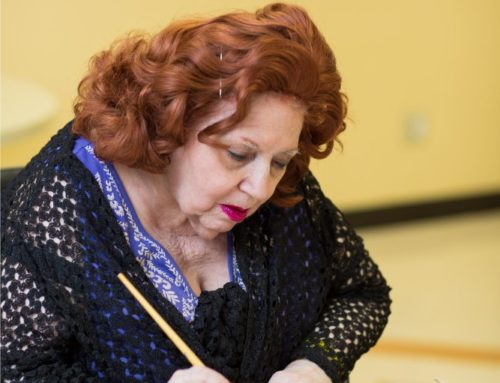What You Should Know About Elderly Sleep Disorders
 There are many senior citizens whose quality of life gets affected because they battle with elderly sleep disorders . It can lead to feelings of tiredness or just an overall lack of energy. People who could once count on getting a good night’s rest might find that as they grow older they are finding it harder to fall asleep. This is not uncommon. As you get older, your sleep habits and patterns actually change.
There are many senior citizens whose quality of life gets affected because they battle with elderly sleep disorders . It can lead to feelings of tiredness or just an overall lack of energy. People who could once count on getting a good night’s rest might find that as they grow older they are finding it harder to fall asleep. This is not uncommon. As you get older, your sleep habits and patterns actually change.
What are the causes of sleep disorders in the elderly?
As you get older, your sleep patterns change. However, there are several other factors that are common amongst the elderly that can lead to sleep problems.
Elderly sleep disorders can be caused by a primary sleep disorder such as restless leg syndrome (RLS) or sleep apnea. Though, Alzheimer’s disease, dementia and other neurological conditions can also increase the risk for developing a sleep disorder, particularly insomnia.
On top of that, there are several elderly who are taking medication that can affect their sleeping patterns. For example, diuretics that are prescribed for high blood pressure and Parkinson’s medication can disrupt your sleep.
What are some symptoms of elderly sleep disorders?
It is in fact many times a partner who spots issues with sleeping first. Some common symptoms include: morning headaches, daytime sleepiness, waking up often at night and taking a long time to fall asleep at night.
How do sleep disorders get diagnosed?
The therapist will complete a physical examination and inquire about the symptoms and habits to identify any underlying illnesses. Usually the therapist might also ask you to make diary entries for a week or two regarding your sleeping patterns. In some situations, you can be referred to a sleep specialist or another appropriate specialist if there appears to be underlying mental conditions.
Should you use sleeping pills?
Good sleeping habits should never be replaced by medication. If sleeping pills are prescribed to treat your sleep disorders, it should only be used on a short-term basis. The reason being that when sleeping pills are used on a long-term basis it can lead to problems such as dependence.
How can therapy help?
To treat elderly sleep disorders, it is better to opt for behavior therapy as the elderly usually already have to take various types of medication. Behavioral therapy typically lasts about six weeks. It can help by putting in place good habits like going to bed at the same time every day.
Battling with insomnia occasionally is quite normal. However, if it is a regular problem, it is always best to seek medical advice. If it is left untreated, it can cause bigger problems such as depression. Also, the risk of falling gets increased.
At Fairview Rehab and Nursing Home in Queens, New York, elderly sleep disorders will receive the right care. Committed teams are at hand to offer expert outpatient rehab care and nursing care. In addition to their skilled staff, Fairview also boasts an award-winning recreation therapy program!
This article contains informational and educational materials and does not replace health or medical advice. For questions or concerns regarding your medical condition or health objectives, speak to a qualified physician or healthcare provider.






Leave A Comment